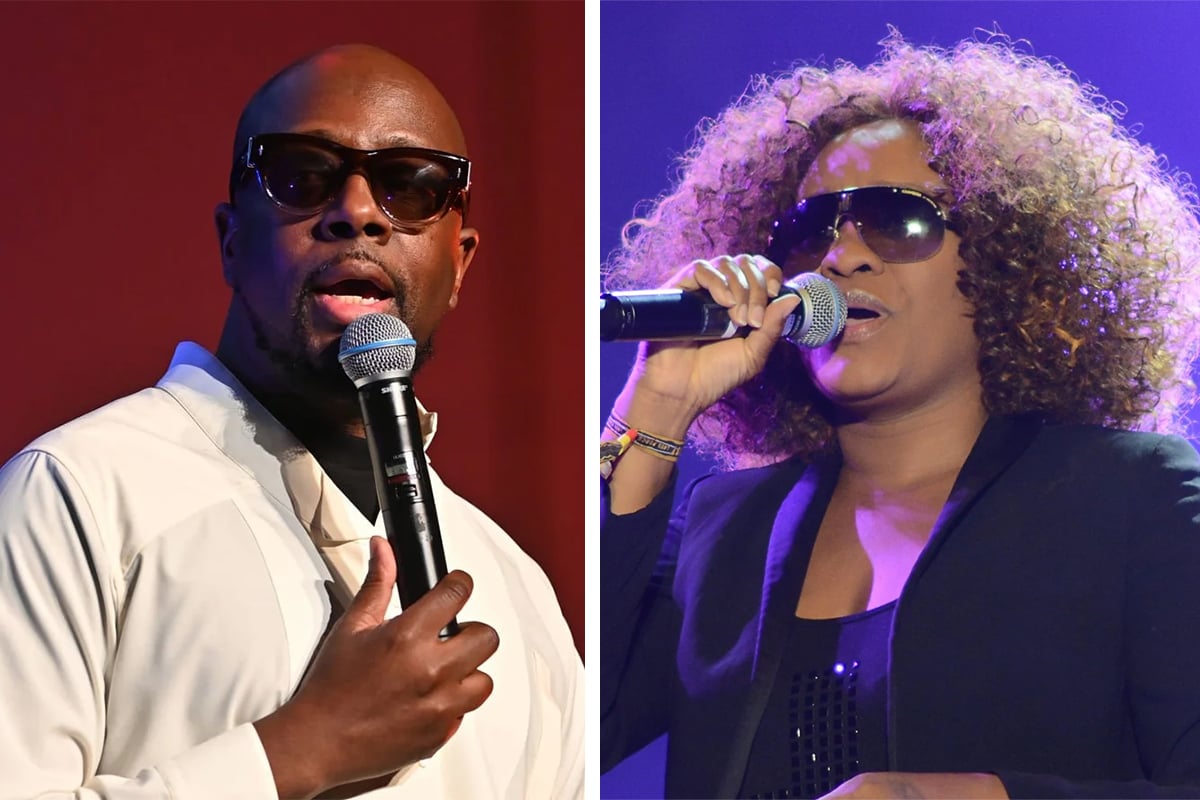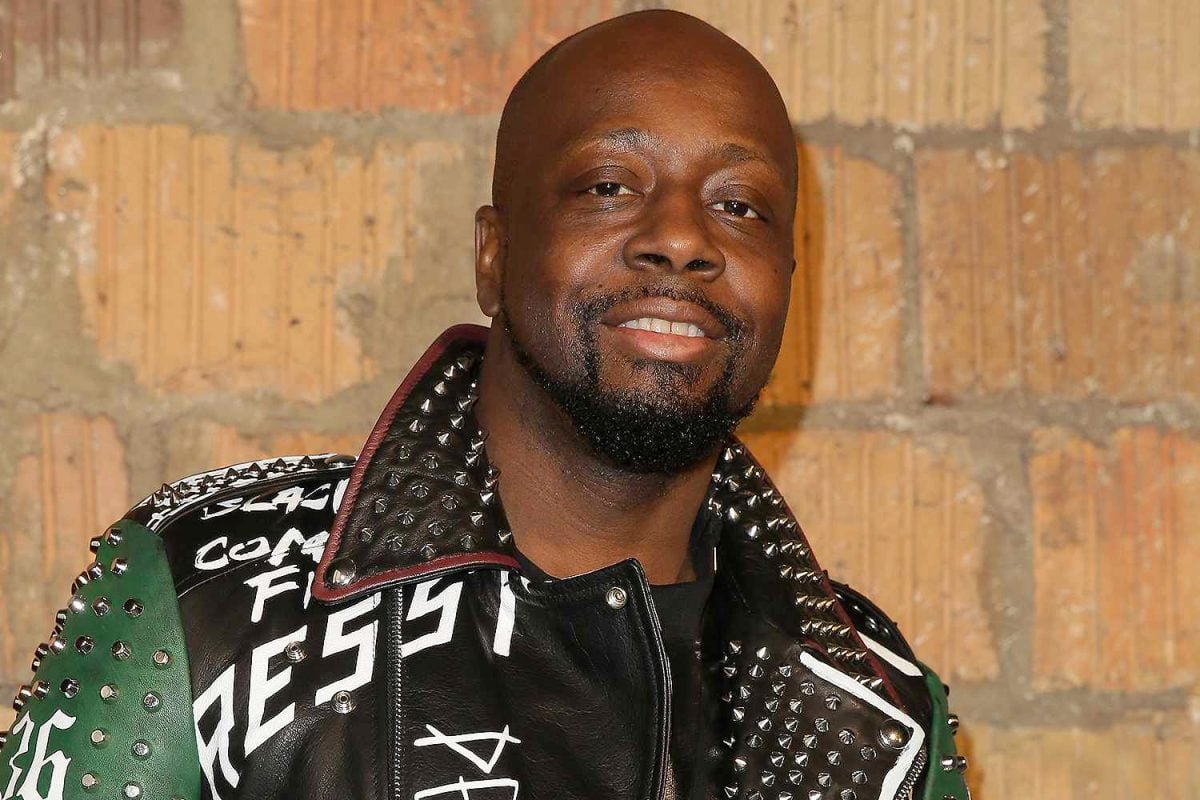Tanya Stephens On Wyclef Jean: ‘We Can’t Pay Him For The Stuff He Does With Us’

Singer Tanya Stephens isn’t collab crazy, but when she indulges, it’s never about getting the hottest act.
Instead, her approach is to make the best song and then get someone who best complements it. This rang true for her collaborations on her fifth studio album, Gangsta Blues , which was released 20 years ago.
Collaborations featured the ride-or-die anthem Gangsta Gal with pal Spragga Benz (whom she previously worked with on Nuh Mek It) and This Is Love with Wyclef Jean, a commitment to ride out the passionate storms of young love. Reflecting on the latter track, Stephens said she had another artist in mind but felt she was being strung along.
“It was very painful because a smaddi weh mi look up to and rate very much, and I felt like if you don’t want to do it, just say so,” the singer told DancehallMag. “No, I am not going to be offended because you don’t owe me anything. I don’t have a sense of entitlement with nobody…”
She proposed the track to another male artist but the stumbling blocks continued. She recalled being asked to take the record to him, only to be told that he could not find the key to open his grill when she arrived.
“Mi drive for hours go link dem. When mi reach, dem seh dem cya find the key fi pull dem grill. I was like, ‘Are you serious? You can’t find the grill key? So if a fire breaks out in that house right now, you’re gonna die?’. Him just stand up a stare pon me like him never think bout that.”
She suggested he take the CD and listen to the song in her presence, only to be told he didn’t have a CD player.
“Him seh, ‘Just leave it’. Mi never waan leave the song cause you know plagiarism and sh-t. I’m not saying he would have been a thief, I’m just saying let’s just prevent anybody being used. So mi seh, ‘Alright, me’ll leave it’. Talk to him the next day and him seh, ‘How do you feel about credits? Like suppose mi waan put a likkle ‘oou baby’ over here?’. I’m like, ‘Listen, I don’t care about the credits but I don’t want you to change the song. What I’m saying is what I want said’.”
Back to square one, she started picturing the raspy vocals she wanted on the song, and Haitian-American rapper Wyclef Jean came to mind. VP Records’ A&R Neil ‘Diamond’ Edwards connected the two, and the song was recorded in a few days.
“Big up Wyclef Jean because Wyclef way busier than all the other people who bullsh-tted me and he made time… He went into the studio, he put down a line, he came out and he said, ‘How was that? You like that? Is that good?’… How can dancehall and reggae people be so much more complicated to work with than a man who has multiple monuments against his name? This is the same Wyclef who was in The Fugees. Same Wyclef who produced several people. He did so much and I’m like, this is unbelievable, but he did it though.”
Stephens, who learned how to record herself (and the works) while working with Warner Music in Switzerland years prior, transferred those skills into editing Clef’s vocals on This Is Love.
“You know Wyclef is more of a writer-producer-musician, but him is not a vocalist-vocalist. I did the editing on his vocals and when mi done with it, nobody believed it was the same song, so mi do the engineer role. Mi a go pat myself on the shoulder for the engineering work because yeah, I love editing vocals. I love chopping them into bits and changing emotions and stuff. What you can do with AI (artificial intelligence), I can do that physically.”
There are some elements she kept, like Clef’s spontaneous blurting out of the most universal Jamaican expletive before the beat drops.
“It wasn’t intended to be a part of the song but I loved it and he loved it too, so we decided to keep it… When you hear terms like cultural appropriation, I’m really not comfortable with them because he wasn’t appropriating – it really inna him soul… When Jamaica calls, he comes running. We can’t pay him for the stuff he does with us.”
She continued: “He’s not a friend of mine, I don’t know him well like that, but we called him and he came. Remember Tanya Stephens was not a commercial artist; Tanya Stephens was a niche artist who don’t even socialise… Him come through and he was so respectful, he was very nice – a gentleman actually – in making the record come about, so mi just waan remind we seh music culture is life…it’s not something to haggle over.”
Clef’s outward affinity for Jamaica traces back to his musical foundation with hip hop disrupters The Fugees, which featured Lauryn Hill and Praz. The group collaborated with dancehall deejay Bounty Killer in 1996 on two songs: Killing Me Softly (Remix) which debuted at No. 1 on Billboard’s Mainstream R&B/Hip Hop Airplay chart, and Hip Hopera which peaked at No. 14 on the Hot Rap Songs chart.
This would lead to the platinum-selling act’s solo collaborations with Jamaicans like Elephant Man, Buju Banton, Sizzla, Wayne Wonder, Mavado, and Dre Island. Outside the booth, he’s loaned his support to local causes like the Shaggy & Friends’ benefit concert and served as a mentor to several upcoming Jamaican artists.
The Maria Maria songwriter launched his own publishing company, Carnival World Music Group, in 2020 which accepts submissions from songwriters and producers regionally.
Clef is currently working on his debut reggae/dancehall album.


